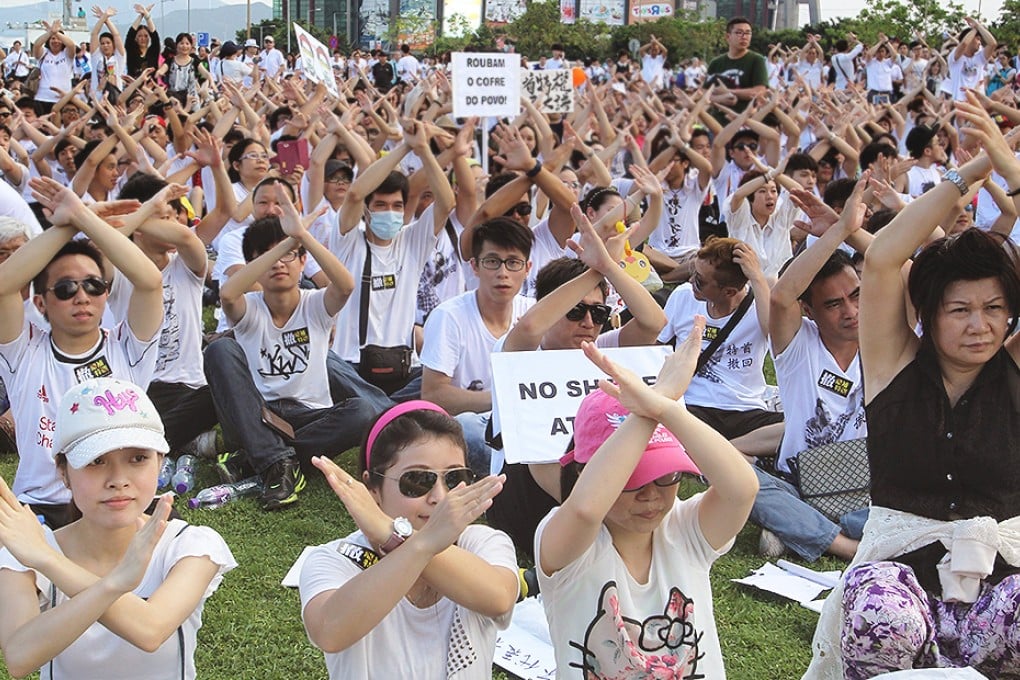Update | Macau protests force chief executive Fernando Chui to scrap controversial perks bill
Chief executive makes a dramatic U-turn over proposal for lavish retirement packages for top officials after huge show of public opposition

Macau's chief executive bowed to public pressure yesterday and scrapped a contentious bill that would have granted lavish retirement packages to top officials.
Dr Fernando Chui Sai-on made the dramatic U-turn two days after thousands of protesters converged on the legislature calling for his resignation if he refused to withdraw the controversial proposals.
He had previously pledged to shelve the bill after an unprecedented demonstration on Sunday, thought to be the biggest march in the former Portuguese colony since the 1999 handover.
A humbled Chui admitted his administration could have done more to explain and solicit opinions on the bill.
"We need to listen to people's opinions in order to narrow the differences and form a consensus," he said after an Executive Council meeting.